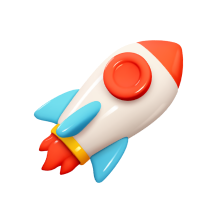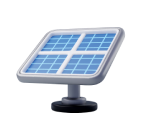Apple Inc. Trails in AI Patents Among Big Tech Giants, While Google Leads with 870 Patents

Updated May 21, 2024
In the relentless AI race, tech giants have advanced through strategic AI partnerships, developments, and augmented patent filings. According to Stocklytics.com, big tech firms are scooping up most of the AI patent rights; however, Apple is falling behind its counterparts with a notable gap. Apple pegged 142 patents to its name in 2023, less than a quarter of Google’s total patents.
The site’s financial analyst, Edith Reads, comments:
Apple’s fewer patents do not necessarily imply a lack of innovation but rather a different strategic outlook. The Cupertino-based company has taken an AI approach that appears to be less about volume and more about targeted impactful innovations.
Stocklytics financial analyst, Edith Reads
Apple acquired the least patents compared to its competitors, Google, Samsung and Microsoft. However, this does not necessarily mean the big tech firm is left behind in the AI brawl. The iPhone maker is actively working on partnerships with Google to integrate the new Gemini AI into its ecosystem. Additionally, its latest acquisition of AI experts from Google is fueling its AI advancements.
Tech Giants Patent Filings
Among tech companies securing U.S. artificial intelligence patents in 2023, IBM emerged as the clear leader, with its closest rivals trailing behind by more than 300 patents. When counting total AI patents, IBM still outpaced its competitors, leading by nearly 7,000 patents. Google followed with 870 patents in 2023, adding almost 5000 cumulative patents.
Samsung, Amazon, and Microsoft rounded out the top five AI patent holders in 2023 with 750, 541, and 527 patent filings, respectively, showing the aggressive pace at which these cloud giant firms have decided to take on AI developments. The top five tech firms’ patent filings shed light on a future characterized by AI-powered machines and systems’ pervasive presence and potential dominance.
Intel Corporation was nearly catching up with the toppers, with over 300 patents acquired in 2023 and a remarkable 1650 total patents, taking sixth place. Dell Technologies and Nvidia are also making tremendous efforts to take over the undecided AI race, with about 240 and 182 patents secured recently.
Apple lags behind all these companies, taking on the 25th spot in this brawled-over patent acquisition.
Apple’s AI Strategy: A Different Approach?
The Silicon Valley Firm has historically been more secretive and selective about its patent filings, often focusing on high-impact technologies that directly enhance its hardware and software ecosystem.
With the anticipated unveiling of iOS 18 and the iPhone 16, which will feature advanced AI capabilities, combined with a heavily rumored collaboration with OpenAI to integrate ChatGPT or GPT-4o into their devices, there’s potential to revolutionize the smartphone experience.
Besides, Apple will introduce a suite of new AI capabilities as part of the iOS 18 update in June, encompassing AI-driven search improvements and Siri-integrated text message summarization.
Despite Apple’s relative silence on the AI front compared to its big tech rivals, it does not necessarily mean the company is falling behind. Leveraging its smartphone market dominance, Apple has immense potential to make inroads into this largely unexplored domain, especially with generative AI picking up.

Sign up for our newsletter
Join our exclusive community of over one million investment enthusiasts and receive our free newsletter filled with analysis, news, and updates every weekday.












 All stocks
All stocks
 All Stocks
All Stocks
 52-Week High
52-Week High
 52-Week Low
52-Week Low
 AI Companies
AI Companies
 Big Tech
Big Tech
 Death Cross Stocks
Death Cross Stocks
 Golden Cross Stocks
Golden Cross Stocks
 High Beta
High Beta
 High Dividend
High Dividend
 High Volume
High Volume
 Highest Cash
Highest Cash
 Highest EBITDA
Highest EBITDA
 Highest NET Income
Highest NET Income
 Highest Revenue
Highest Revenue
 Largest Employers
Largest Employers
 Most Expensive
Most Expensive
 Most Volatile
Most Volatile
 Tech Companies 2024
Tech Companies 2024
 Triangle Patterns Stocks
Triangle Patterns Stocks
 All ETFs
All ETFs
 All ETFs
All ETFs
 Energy Sector ETFs
Energy Sector ETFs
 Major World ETFs
Major World ETFs
 Top US ETFs
Top US ETFs
 All Tools
All Tools
 Alerts
Alerts
 Technical Signals
Technical Signals
 Score
Score
 Smart Portfolio
Smart Portfolio
 Candle and Chart Patterns
Candle and Chart Patterns
